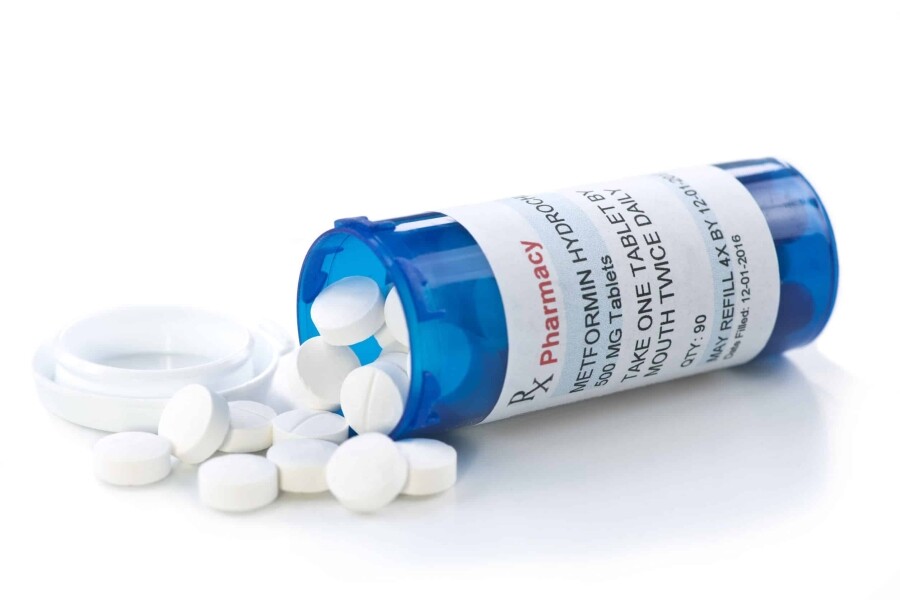Introduction to Type 2 Diabetes
Before diving into the specifics of Metformin Hydrochloride, it’s essential to understand the fundamentals of type 2 diabetes. This condition arises when the body either resists the effects of insulin or the pancreas fails to produce enough insulin to maintain stable blood sugar levels. While the pancreas in type 2 diabetics is still functioning, it doesn’t do so efficiently enough to support overall health.
High blood sugar levels (a state known as hyperglycemia) can lead to severe complications, including neuropathy, heart disease, eye damage, and kidney damage. Therefore, maintaining blood sugar within the normal range is critical. One of the most effective tools for achieving this is the medication Metformin Hydrochloride.
What Is Metformin Hydrochloride?
Metformin Hydrochloride (HCL) is a widely prescribed medication for type 2 diabetes. It belongs to a class of drugs called biguanides and is known for its safety and effectiveness.
How Metformin Hydrochloride Works
Metformin HCL serves two primary functions:
-
Reduces Glucose Production by the Liver:
The liver is responsible for storing and producing glucose, particularly during periods when the body is not receiving food, such as overnight or between meals. Metformin reduces the liver’s glucose output, especially through processes like glycogenolysis and gluconeogenesis. -
Increases Insulin Sensitivity in Muscle Cells:
Metformin helps cells respond better to insulin, thus reducing insulin resistance—a common characteristic of type 2 diabetes. It’s important to note that Metformin is not insulin, nor does it act like insulin.
Onset and Lifestyle Factors
Metformin Hydrochloride doesn’t produce immediate results; it may take a few days before blood sugar levels normalize. Its effectiveness is significantly improved when combined with a healthy diet and regular exercise.
Common Side Effects of Metformin Hydrochloride
Most side effects are mild and may subside as the body adjusts. Common issues include:
-
Stomach pain
-
Diarrhea
-
Bloating
-
Flatulence
Sometimes, these symptoms may be caused by diet rather than the medication itself.
Serious Side Effects
-
Low Blood Sugar (Hypoglycemia): Especially when combined with other glucose-lowering medications or alcohol. Symptoms of hypoglycemia can include dizziness, confusion, fainting, or seizures.
-
Other Side Effects: Nausea, vomiting, chest discomfort, muscle weakness, and heartburn.
If any unusual symptoms occur, it’s essential to contact your healthcare provider immediately.
Drug Interactions
Always inform your doctor about all medications, supplements, and over-the-counter products you are taking.
Known Interactions:
-
X-ray Dye (Contrast Media): Can cause lactic acidosis when combined with Metformin, potentially leading to kidney failure. Your doctor may advise pausing Metformin before and after imaging tests.
-
Tafenoquine (malaria treatment): Risk of severe adverse reactions including lactic acidosis.
-
Alcohol: Regular, heavy consumption while on Metformin may lead to lactic acidosis, vitamin B-12 deficiency, and hypoglycemia.
Consult your physician to understand how Metformin HCL may interact with your specific medications or lifestyle choices.
Can Metformin Hydrochloride Be Used to Treat Type 1 Diabetes?
The short answer is no—Metformin Hydrochloride cannot replace insulin in individuals with type 1 diabetes. However, it may be prescribed alongside insulin to improve glycemic control.
Clinical Study Insight
In one study, a group of type 1 diabetics who took Metformin Hydrochloride in addition to insulin required lower insulin doses compared to those on insulin alone. While promising, more research is necessary before Metformin Hydrochloride becomes a standard co-treatment in type 1 diabetes management.
Additional Benefits of Metformin Hydrochloride
Metformin Hydrochloride is being studied for several potential uses beyond managing type 2 diabetes:
-
Prediabetes: Could prevent progression to type 2 diabetes, though not yet FDA-approved for this use.
-
Weight Loss: Anecdotally linked to appetite suppression and fat storage regulation.
-
Polycystic Ovarian Syndrome (PCOS): May aid in regulating menstrual cycles and improving fertility.
-
Cancer and Tumor Suppression: Some early findings suggest it may slow tumor progression and enhance anti-cancer therapies.
-
Heart Health: Ongoing studies are evaluating its protective effects against cardiovascular disease in diabetics.
As research continues, Metformin Hydrochloride may prove beneficial for various other conditions. For now, its primary and approved use remains the management of type 2 diabetes.
Affordable Access Through Prescription Hope
If the cost of Metformin HCL is a concern, Prescription Hope may be able to assist. With our medication access service, you can get your Metformin HCL for only $70.00 per month. Enroll today to explore affordable options for your brand-name medications.
